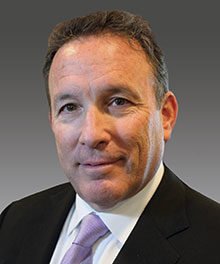Goodbye Amazon

By now, you know that Amazon has pulled the plug on opening a new headquarters in Long Island City, a neighborhood in Queens, New York, just across the East River from Manhattan, that has been developing like wildfire. It’s all anyone in these parts has been talking about (except for the “possibly” bigger news about former acting FBI Director Andrew McCabe’s claim that the Justice Dept. discussed whether the 25th Amendment could be invoked to remove President Trump from office – but that’s not our topic this week).
The Amazon implosion is a big blow for New York City, where I live with my family. Amazon was expected to bring 25,000 new jobs to Queens, but local politicos and community organizers seemingly missed that point. They were too worried about how the stress on the local housing supply (and the attendant boost in housing prices) could lose them the next election. Apparently, Amazon didn’t want the headache of having to face down the opposition and persuade the community that the long-term benefits of its presence would be a good thing for Queens and for the city. Now, the company will be focusing its attention instead on Northern Virginia, where it had planned to locate another headquarters, and other places where the people seem to appreciate economic development and new jobs.
NIMBYism aside, the Amazon deal sparked a lot of controversy from the get-go, given the nearly $3 billion in tax incentives the company was offered, based on the anticipation of $27 billion of new tax revenue for New York City and New York State. Google is getting set to bring 7,000 new jobs to New York City without similar tax breaks. And the fear that Amazon’s presence could drive up the cost of housing in Queens – a haven for people looking for homes affordable to the middle class – was legitimate. Thanks mostly to the effects of its thriving tech industry, San Francisco is now contending with housing so pricey that it’s driving people out of the city.
Still, it’s disappointing, as a business leader, to see the city lose out on this many well-paying tech jobs. The average salary for the new positions at Amazon was expected to be $125,000 – enough to lure sought-after tech talent from other cities. Moreover, Amazon is on nearly every list of best companies to work for, so we’re talking about high quality, as well as highly compensated, jobs.
That’s not to mention the loss to all of the small and midsize businesses in Queens that would have benefited from Amazon’s presence. No doubt the 25,000 new workers at HQ2 would have frequented the local delis and restaurants, spent at the local dry cleaners and gas stations, and used the area’s professional services firms. These employees would also have paid taxes that could have been put to good use upgrading our infrastructure and improving the city’s public schools. The ripple effect of 25,000 new jobs would have been amazing to the un- or under-employed of New York. But our politicians thought better of it and squandered 25,000 new jobs and $27 billion in new tax revenue, all because Amazon was getting a $3 billion discount. I’d gladly give any client willing to use $27 billion of Marcum services a $3 billion discount.
I’m not surprised that Amazon decided to give up on NYC so quickly; that one of the biggest companies in the world was chased off by a small (but vocal) minority, especially since a majority of New Yorkers favored the Amazon deal when surveyed about the project. But while the opposition was real, so was the support. In a vibrant city like New York, spirited dialogue about major new real estate developments is par for the course – not a reason to pack up and go home. AOC will forever be remembered as losing 25,000 jobs for her constituents in her first month on the job.
Perhaps this was a warning by Amazon to other cities, suggesting they’d better make sure their residents get with the program or risk losing jobs. If that is the case, it’s troubling at a minimum. The technology industry has grown up, and when an industry becomes more mature, the bar for corporate citizenship and community involvement gets higher.
It’s probably too late to get Amazon to reconsider but this situation could be a good opportunity for more public dialogue across the country about what role we want the technology industry to play in our cities. In the meantime, we in the accounting field will be busy creating jobs for both tech-savvy accountants and technology pros who want to contribute their skills to our industry – where there is tremendous opportunity. And if any non-accountants need a quick explanation of the subsidies being offered to the next tech firm that casts eyes on the Big Apple, I’m happy to offer a quick tutorial.
